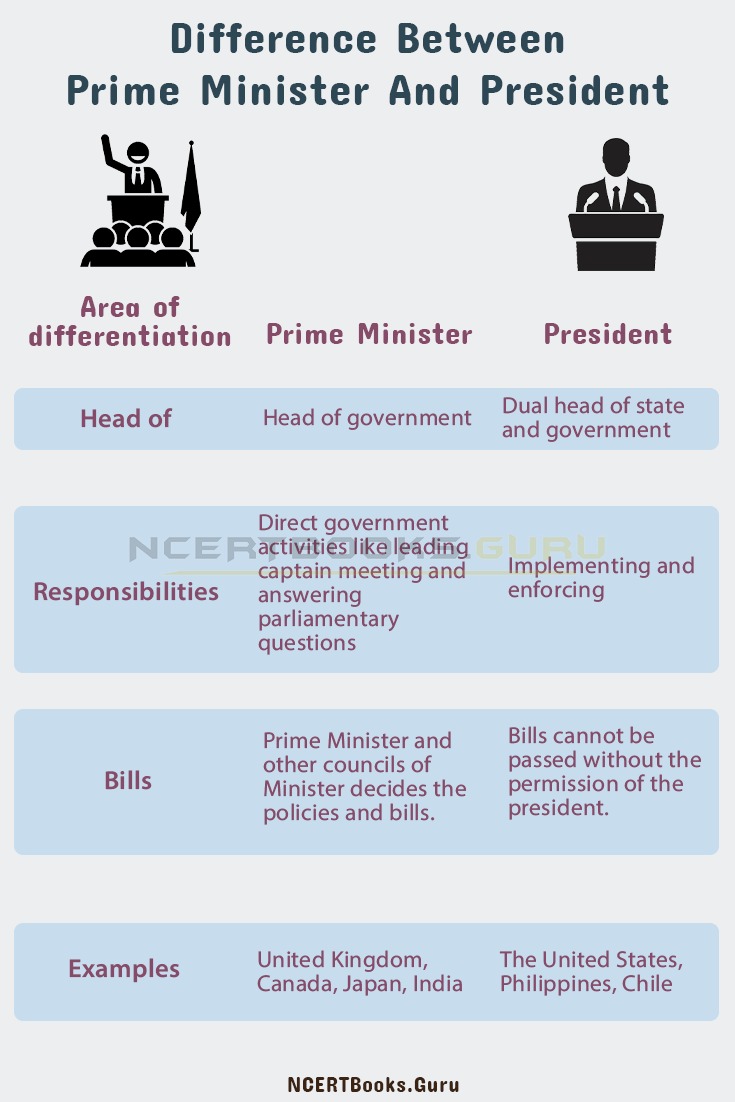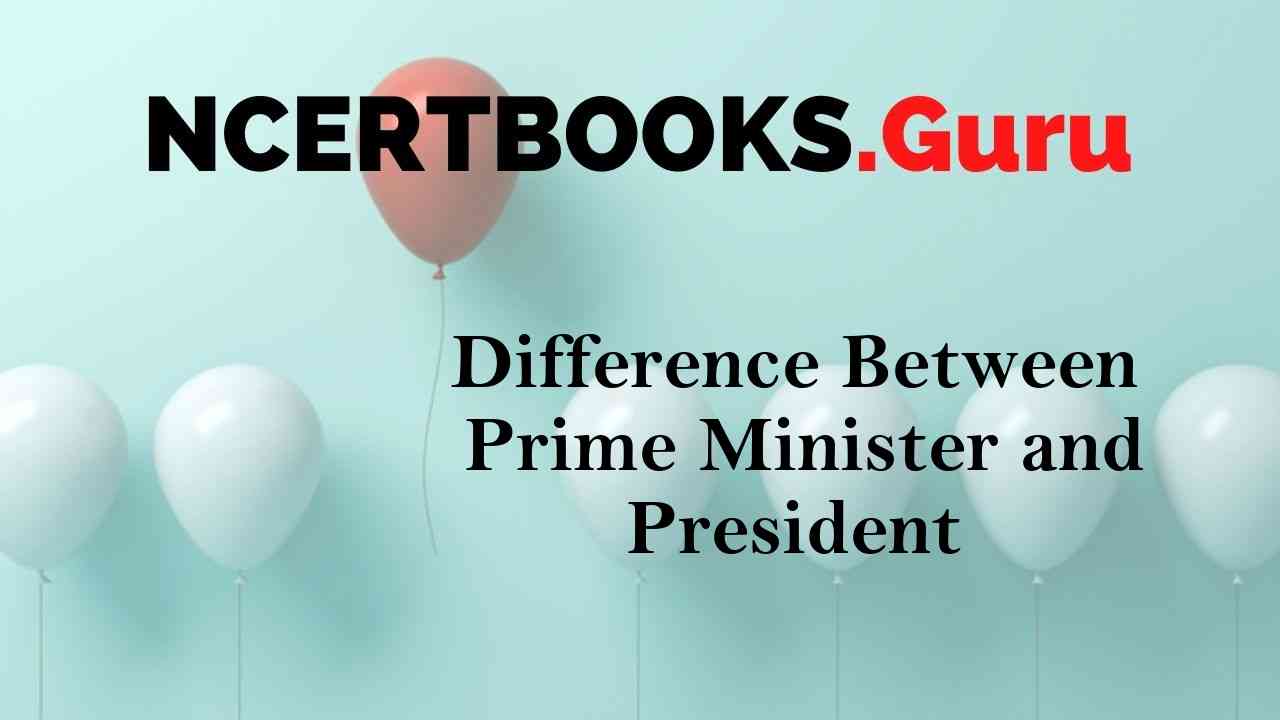Introduction
The head of a country is the public persona who officially embodies a state in its unity and legitimacy. The Prime Minister and the president hold power depending on the countries form of government and separation of power. The head of the state may be a ceremonial figurehead or concurrently the head of the government.
You can also find differences between articles on various topics that you need to know. Just tap on the quick link available and get to know the basic differences between them.
What is the Difference Between Prime Minister and President?
About The Prime Minister
Prime Minister is the administrator of the cabinet and the leader of the ministers in the executive branch of government, in a parliament or Semi presidential system. Under these systems, a prime minister is not the head of the state of their respective state nor a monarch.
The Prime Minister is also the head of the government, serving typically under a Monarch in a hybrid of aristocratic and democratic government forms or president in a republican form of government.
About The President
The president is a general title for the head of the state in most republics. The functions exercised by the president vary according to the form of government. In a parliamentary republic, they are usually limited to those of state heads and are largely ceremonial.
In presidential, selective parliamentary and semi-presidential republics, the president’s role is more prominent, encompassing the functions of the head of government. In authoritarian regimes, a dictator or the leader of a party may also be called the president.

Difference Between Prime Minister And President
| Area of differentiation | Prime Minister | President |
| Head of | Head of government | Dual head of state and government |
| Responsibilities | Direct government activities like leading captain meeting and answering parliamentary questions | Implementing and enforcing congressional laws |
| Co-ordinate work of the cabinet and implement programs | Acts as a commander or chief of the military | |
| Meets foreign officials and dignitaries | Perform ceremonial duties like meeting the dignitaries | |
| Appoints government and its members | Appoints Federal government head, including the cabinet |
|
| Construct and make policies | Signs policies into law | |
| Bills | Prime Minister and other councils of Minister decides the policies and bills. | Bills cannot be passed without the permission of the president. |
| Examples | United Kingdom, Canada, Japan, India | The United States, Philippines, Chile |
Similarities between Prime Minister and President
- In both the forms of government, people elect their representatives.
- Both the president and the Prime Minister of the systems are weekend by failure to command a legislative majority.
- The major similarity between a presidential democracy and a parliamentary democracy is that both of these types of government a democracy. This is a fundamental similarity and is perhaps, more important than any other differences.
- The Prime Minister and the president are both the head of the government, except the president is also the head of the state.
- Both the Prime Minister and the president can be removed from their positions. The president can be removed by impeachment, while a prime minister can be dismissed by the governor-general.
Frequently Asked Questions on Difference Between Prime Minister and President
Question:
What happens in the president’s rule?
Answer:
The council is overseen by the Chief Minister, who is the de facto chief executive of the state. The earth is only a de jure or constitutional head. However, during the president’s rule, the council of Minister is dissolved, vacating the Chief Minister’s office.
Question:
Who is the longest-serving Prime Minister?
Answer:
The Longest-serving Prime Minister is named sir Robert Walpole. His term began in 1721 and ended in 1742, which equals seven thousand six hundred twenty days ok service.
Question:
Who has a position higher than the president?
Answer:
The Senate has exceptionally high authority, sometimes higher than the president and the house of representatives. The Senate can try cases of impeachment, which can dismiss a President for misconduct.
